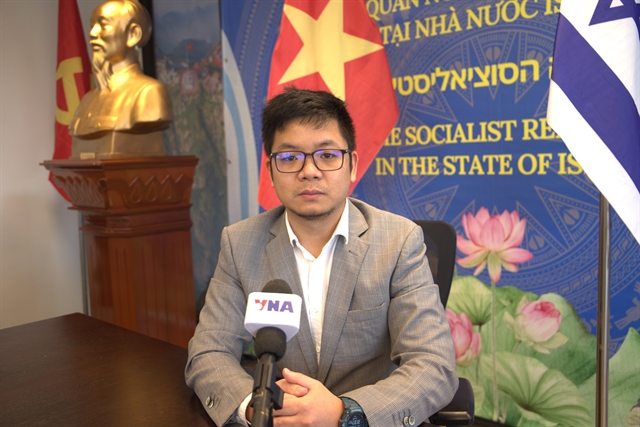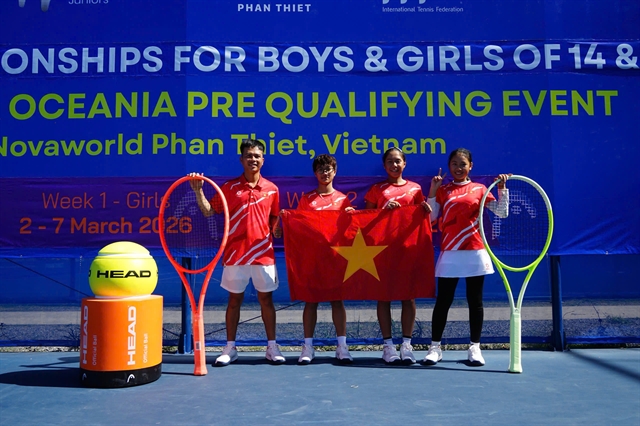 Economy
Economy
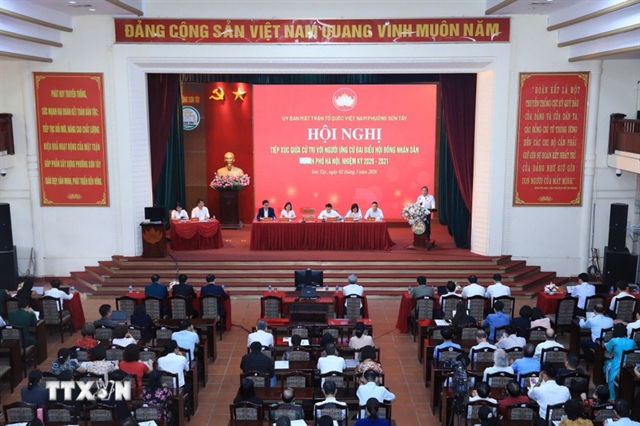
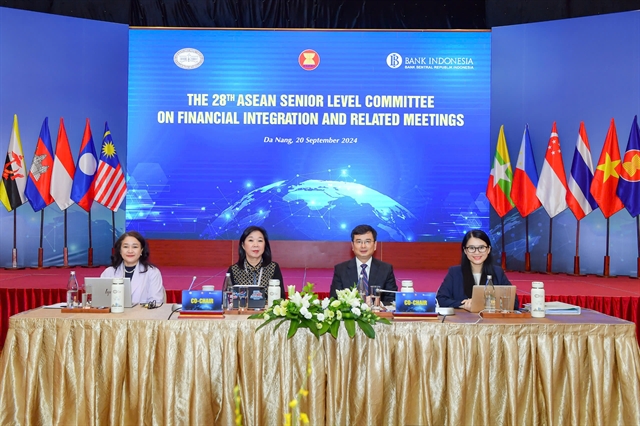
|
| Deputy Governor of the State Bank of Việt Nam (SBV), Phạm Thanh Hà (second right) co-chairs the 28th Meeting of the ASEAN Senior Level Committee for Financial Integration (SLC) in Đà Nẵng City. Photo courtesy of SBV |
ĐÀ NẴNG — Việt Nam will keep boosting integration and regional financial connection in ASEAN, while promoting deeper links of the region with the international community for sustainable development and better resilience as well as enhancing institutional capabilities of ASEAN.
Deputy Governor of the State Bank of Việt Nam (SBV), Phạm Thanh Hà made the commitment at the 28th Meeting of the ASEAN Senior Level Committee for Financial Integration (SLC) in Đà Nẵng on September 20, stressing that Việt Nam as a co-chairman of the event, would do its best with responsibilities to other member countries in strengthening co-operation and integration with regional and international partners.
“The year 2024 is pivotal for ASEAN, as it serves as both a reflection on the progress of the ASEAN Community Vision 2025 and a forward-looking moment to sketch ASEAN's future by developing Strategic Plans to implement the ASEAN Community Vision 2045,” Hà remarked at the opening ceremony.
“SLC Meeting offers an opportunity to discuss how to fulfil initiatives under the SLC purviews. Our agenda is comprehensive, covering crucial updates from the Bank for International Settlements (BIS) and ASEAN+3 Macroeconomic Research Office (AMRO) on global and regional macroeconomic developments, progress reports from our various working committees, and key initiatives including the ASEAN Taxonomy, ASEAN Green Map, and the re-establishment of the ASEAN Swap Agreement,” he added.
Hà said the 28th SLC Meeting was convened in the context of the evolving regional and global economic landscape as the global economic outlook was positive and the economies were regaining their strength.
He, however, warned that many uncertainties and challenges were still surrounding the outlook, and financial markets were fluctuating, trade dynamics were shifting, and technological advancements were reshaping the economies.
“ASEAN has demonstrated strong resilience, and we must continue working together to ensure that our financial systems are both integrated and stable, as outlined in the ASEAN Economic Community Vision 2025.”
He suggested that all participants should engage actively in these discussions in shaping ASEAN's financial future.
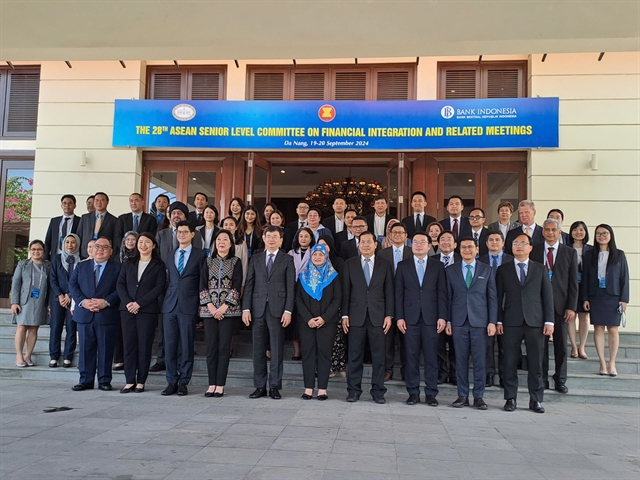
|
| Governors of central banks from ASEAN member countries join a photo session with participants at the 28th Meeting of the ASEAN Senior Level Committee for Financial Integration. VNS Photo Công Thành |
Philip Wooldridge, Head of Economics and Financial Markets, BIS, shared that there was increasing sensitivity of global markets to changes in monetary policy, particularly in advanced economies.
He also said inflation was falling faster than expected globally and continuing to decline towards targets due to the easing of supply side pressure and tightened monetary policy, and the financial system proved remarkably resilient.
In his presentation, Philip suggested that as central banks in the US and other major economies adjusted their policy stances, emerging markets including those in ASEAN might experience significant spillovers, and this environment called for a more proactive and coordinated monetary policy approach within ASEAN.
Catharine Kho, Senior Economist from AMRO also shared briefs on the Regional Economic Outlook.
She said: “The region's growth outlook anticipates robust growth and moderate inflation for ASEAN in the near term. The positive outlook is driven by strong domestic demand, a rebound in tourism, and solid export performance, especially in the technology sector. However, we must remain mindful of ongoing challenges, such as inflationary pressures stemming from rising global energy costs and increasing geopolitical uncertainties.”
“In light of the current global uncertainties, it is essential to enhance our financial integration and regional cooperation. Strengthening economic ties and adopting innovative financial strategies will be critical to mitigating external shocks and sustaining economic growth across the region.”
A working committee of ASEAN Banking Integration Framework (WC-ABIF) suggested a solid foundation for deeper financial integration in ASEAN with various risks to the regional economic growth such as global economic slowdown, high inflation and spill-over risks, cyber security, and climate change.
Hà also highly appreciated the recognition of financial cooperation, reducing redundancies and fostering inter-sectoral collaboration as well as recommendation of establishment of a Task Force in implementation.
He also expressed his support for Malaysia's proposals under its ASEAN 2025 Chairmanship regarding sustainability, payment connectivity, and local currency transactions as well as collective financial and banking cooperation.
The SLC meeting, which was co-chaired by SBV and Bank Indonesia, saw governors from ASEAN central banks, and delegates from Banco Central de Timor Leste as an observer. VNS



